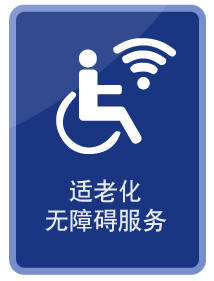
-
提示:您已進入導航區(qū)1,本區(qū)域含有7個鏈接,按下Tab鍵瀏覽信息
-

2021-08-27 14:22:41 -
來源: 本網(wǎng) -
【字體: 大 中 小】 打印 -
分享到:
提示:您已離開導航區(qū)1
U.S. industry petitions Commerce to address alleged solar AD/CVD dodging August 17, 2021 at 5:47 A group of U.S. solar manufacturers on Monday filed petitions with the Commerce Department alleging that Chinese companies are evading antidumping and countervailing duty orders on crystalline silicon photovoltaic cells and modules and calling for duties to be extended to circumventing entities outside of China. The industry group, calling itself the American Solar Manufacturers Against Chinese Circumvention (or “A-SMACC”), requested that Commerce investigate imports of certain solar products from companies in Vietnam, Malaysia and Thailand, where it says components are diverted from China and go through “minor processing” to circumvent AD/CVD orders, according to petitions on each country. A-SMACC is a coalition of several domestic solar manufactures. The names of its members are redacted in the petitions seen by Inside U.S. Trade. The U.S. International Trade Commission initiated AD/CVD investigations into imports of CSPV cells from China in November 2011, and Commerce imposed AD/CVD orders in December 2012, according to the petitions. Following a review in 2019, Commerce determined the orders should continue. The petitioners note that the orders apply to cells “whether or not assembled into modules” and state that Commerce has found that “cells manufactured in China, modules manufactured in China with Chinese cells, and modules manufactured in third countries from Chinese cells are subject to the Orders.” According to the petitions, U.S. imports of solar cells and modules from China dropped significantly after the orders were imposed, with an 86 percent decline in the value of Chinese imports of the products from 2011 to 2020. Meanwhile, imports from Vietnam, Malaysia and Thailand have risen considerably, the industry group wrote. The U.S. in 2020 imported more than $1.6 billion worth of the products from Vietnam, $2.3 billion worth of the products from Malaysia and $1.4 billion worth of the products from Thailand, compared to $1.3 million, $576 million and about $336,000, respectively, in 2011, according to the petitions. A-SMACC contends that imports from those countries rely on Chinese-origin inputs and states that China’s dominance in the solar industry has only increased since the AD/CVD orders took effect. “While Chinese companies now almost exclusively export to the United States from Southeast Asia, the vast majority of manufacturing, research and development, and capital investment remain in China,” the group said in a statement. “In cases like this the law is clear; the duties on Chinese solar products should be extended to circumventing entities. Otherwise, it is likely that our industry will succumb to monopoly control, our energy security will be at risk, and the Biden Administration’s goal to Build Back Better with clean energy manufacturing will be gravely imperiled.” According to the petitioners, China is especially dominant in the solar wafer market, accounting for 93 percent of global wafer production in 2018. In addition to the AD/CVD orders on Chinese solar products, the U.S. in 2018 imposed tariffs on silicon photovoltaic cells and modules. The ITC earlier this month opened an investigation into whether to extend that remedy, imposed under Section 201 of the Trade Act of 1974. The tariffs are set to expire next year. The probe followed a request from two U.S. solar manufacturers that said extending the remedy was critical to ensuring U.S. “solar energy independence” and expressed a commitment to on-shoring the solar supply chain, including components like cells and wafers. Solar panel materials from China also have sparked forced-labor concerns. U.S. Customs and Borders Protection in June issued a withhold-release order on silica-based products -- critical solar panel materials -- made by Hoshine Silicon Industry Co., Ltd., and its subsidiaries based on “information reasonably indicating” the company uses forced labor, according to a White House statement. About half of the world’s polysilicon comes from Xinjiang, where China has come under fire for its detainment of Uyghur Muslims. According to research published last week by Roth Capital Partners, more than 100 containers of modules -- representing about 30 to 35 megawatts total -- from a single company have been detained under the order since it went into place, though one of the investment bank’s sources said the real volume could be two to three times higher. According to a trade attorney, the detained containers were from Chinese producer Jinko Solar, which is among the companies alleged to be evading AD/CVD orders.

 粵公網(wǎng)安備 44190002000375號 粵公網(wǎng)安備 44190002000375號
|




